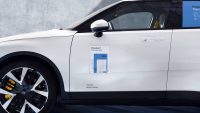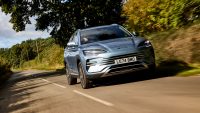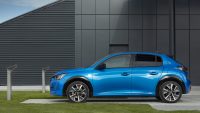Covering the business of selling cars on a daily basis is never dull.
2022 has been a year packed with some stellar stories – good and bad – that has seen our website traffic rocket to nearly 6.5m unique users.
While we bring you copious amounts of content every week, every now and then a story shocks even me.
So for this festive post, I’ve decided to have a little look back at the Car Dealer headlines the shocked me the most
Stellantis car buyers forced to pay for cars they haven’t seen
This was one of those stories where every paragraph I typed I couldn’t quite believe what I was writing. It might be a recent one, but it’s already become my most shocking story of the year. Struck by problems with transportation from ports, Stellantis has been struggling to get new cars to dealers.
But, as it attempts to ‘secure factory production for next year’, the car maker has forced its dealers to get customers to pay for cars they haven’t even had delivered yet. Some customers had paid out three months’ of finance payments, insurance and tax for a car they hadn’t even seen. They faced the prospect of losing them if they didn’t agree. I still can’t quite believe they’ve been doing it. Or allowed to get away with it.
Pendragon held to ransom by hackers
It’s been a turbulent year for listed car dealer Pendragon. While its financial performance has improved, it’s been the subject of takeover bids from the US and Sweden, neither of which amounted to a deal. While it’s likely we haven’t seen the end of that, it was a story about cyber hackers that shocked me more.
In October, Pendragon was forced to admit it has been the subject of a cyberattack by a group known as LockBit 3.0. The hackers wanted £54m in ransom money paid or it threatened to release data it had stolen on the dark web. Pendragon said it wouldn’t pay up and two deadlines came and went, but the attack showed just how vulnerable car dealers are to these hackers.
Carzam founder blames Cazoo for its collapse
The online used car dealer ‘disruptors’ are never far from the headlines – and this year we saw the collapse of one many in the industry was backing as a winner: Carzam. The online used car dealer was started by Big Motoring World’s Peter Waddell and Hendy shareholder John Bailey. In June this year the business was placed into voluntary administration owing creditors nearly £19m.
While no one wants to see a business fail, especially owing suppliers money, Waddell’s comments laying the blame at rival Cazoo boss Alex Chesterman’s door raised eyebrows. ‘If he had done his job properly, we might have had the chance to get some money,’ Waddell told the Times.
Marshall Motor Group sold for bargain price
It was the story that shocked the car industry at the turn of 2022 – Marshall Motor Group snapped off the Stock Market by We Buy Any Car owner Constellation. The firm swooped on the car dealer group by offering to buy the majority of shares from the Marshall family.
The canny move triggered the group’s exit into private hands and, not long after, charismatic boss Daksh Gupta leaving too. What shocked me the most, though, was the bargain price Constellation paid.
At £325m, this was little more than £215m of property the group held, £27m of cash in the bank and just after a 15-month bumper ‘year’ that clocked up £92.5m of profit.
Fake car dealers conning car buyers out of cash
This one has been a story that has run and run for us. Sophisticated con men have set up a variety of car dealer websites, spoofing dormant legitimate businesses to scam car buyers out of cash. They set up a website that looks entirely like a genuine car dealership, say they are located in darkest Scotland and then advertise the cars to London buyers.
They suspect these buyers won’t be bothered to travel to see the car first and convince them to pay for the used models (which are suspiciously cheap) in advance. Of course, the cars never existed and they steal the money.
Car Dealer has reported on three near-identical scams, including JDM Cars, Millers Car Sales and AD Car Sales. The most shocking bit? The police, social media platforms and the website hosting companies seemed to be able to do very little to stop them.
Cazoo lays out savage cuts to stem huge losses
Speak to anyone privately in the motor trade and they’ll say ‘I told you so’, when you mention online used car dealer Cazoo’s woes. The business – set up by Zoopla founder Alex Chesterman – notched up losses of £329m in 2021 and is desperately trying to get back on an even keel.
In June, the firm revealed its plans to ‘right size’ the business with a drastic action plan that saw sites closed, jobs cut and advertising slashed. It also decided to pull out of Europe, only a few months after splashing out nearly £100m on firms in Italy and Spain.
Pity for Cazoo, though, has been thin on the ground ever since Chesterman labelled car dealers as ‘sharp elbowed’ and branded their way of selling cars out of date when he arrived on the scene in a hail of publicity.
Tom Hartley Junior makes £11.3m selling just 102 cars
We analyse a lot of car dealer financial results every year as accounts are submitted to Companies House – but for me, there was one set that was more impressive than them all. Tom Hartley Junior, son of supercar dealer Tom Hartley, managed to clock up an impressive £11.3m profit in 2021.
It wasn’t that figure that was impressive, though – it was the fact he managed to do so from selling just 102 cars. That was seven less than the year before but he still managed to make £4.8m more. The luxury and classic car dealer certainly knows his stuff and its results like this that make the motor trade sit up and take notice.
Car salesman’s shock at whopping mobile phone bill
Imagine going on holiday and getting a call from your boss to say you’ve clocked up roaming charges of nearly £200k… in four days! Well, unfortunately for poor John Nisill of AAA Performance, that’s exactly what happened.
On holiday in Turkey, the salesman got a call from his manager to say he was concerned his phone bill was a ‘little high’. BT claimed he had used 43GB of data at a cost of £192,000. After looking into it, much to his relief, BT waived the bill. Heart attack averted.
Land Rover’s attempts to stop buyers flipping cars
Selling cars on for a profit is sort of the name of the game in the motor trade, but not, it seems, if it’s the customer making a profit. This year Land Rover started to force its dealers to conduct ‘due diligence’ on its customers and make them sign contracts saying they won’t sell their cars on for six months.
With Range Rover prices soaring, thanks to poor supply of new models, some customers were selling their cars for as much as £30,000 premiums. Land Rover made the heavy handed move to stop them. Dealers were even ‘fined’ if they failed to conduct the necessary checks. I don’t know about you, but when I’ve bought something I’d like to think what I do with it after that is up to me. I wonder how enforceable those contracts would be…
Car dealer director’s £64.8m tax bill
No one likes paying their tax bill – but imagine how painful it would be if the slice you owe to HMRC was £64.8m? No, we’re not talking about a company’s bill here, but Arnold Clark’s largest shareholder Lady Philomena Clark.
She was named as the 18th largest tax payer by the Sunday Times earlier this year alongside Sir James Dyson and Lord Sugar. Lady Clark is the dealer group’s chairwoman. If she thought that bill was bad, wait until her accountants work out the next one. Our latest Car Dealer Top 100 shows Arnold Clark made EBITDA profits of £398m in 2021.
Car Dealer Live – the future of the car dealer – exclusive conference features talks from leading car dealers, Google and Auto Trader among much more. Find out the full event details and book tickets.



































